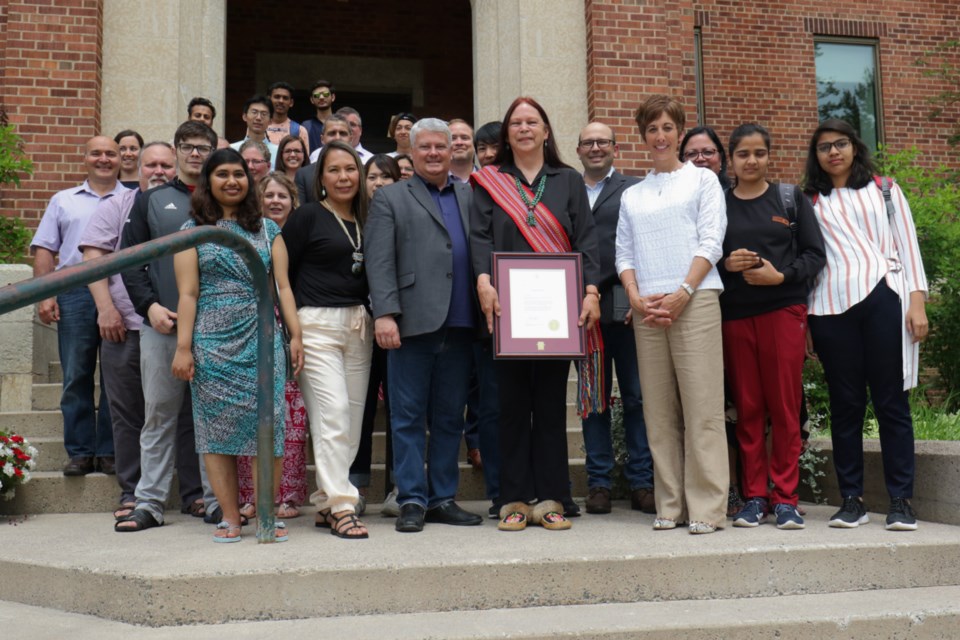Dr. Paulette Steeves has been appointed Tier II Canada Research Chair in Healing and Reconciliation at Algoma University, where the Paleo-Indigenous archaeologist will continue her research on the history of Indigenous peoples in the Americas.
Steeves will receive $500,000 over the next five years from the federal government in order to support her efforts.
“This is really one of the highest honours in our country for an emerging researcher in academia, and we’re so happy that she chose to conduct this research on this site, and as part of the Algoma University community,” said Algoma University President Asima Vezina during Friday’s announcement at the university. “Dr. Steeves fully understands our special mission, and is committed to excellence and research and truth as it pertains to the first peoples of Canada and their history here on Turtle.”
“Her research will add a new dimension to the field of archaeology.”
Steeves, an assistant professor in the department of history at Algoma University, told reporters following Friday’s announcement that she was drawn to the research chair position due to the time she’ll have to continue her research.
“It takes a lot of literature research, history research, and that takes time away from teaching, so the Canada Research Chair allows me to teach only one course a semester, and to apply the rest of my time to doing research,” said Steeves. “That’s one of the things that really attracted me.”
Steeves currently has three students working under her, and hopes to have about six students assisting with research and data collection in the coming months.
“I’m researching sites in North and South America that have dated older than 11,200 years,” said Steeves. “So most people are taught Indigenous/First Nations people have only been here 11,000 or 12,000 years. My research shows that they’ve been here minimally over 130,000 years, and likely over 200,000 years.”
“So any site that’s been recorded and dated in the last hundred years, I’m getting that paper, sometimes I’m visiting the sites, studying the collections - and I’m creating the database and mapping the sites to show where people were across time.”
Steeves says that she’s established a database of about 300 sites throughout North America and South America that date older than 11,200 years, and knows of more than 4,000 sites altogether.
“If your research is funded, it’s an acknowledgement that your research is probably going on a really good track,” she said.
Steeves - who is of Cree and Metis descent - was awarded her PhD in 2015, and will have her first book, The Indigenous Paleolithic of the Western Hemisphere (the Americas), published by the University of Nebraska Press in 2020.
